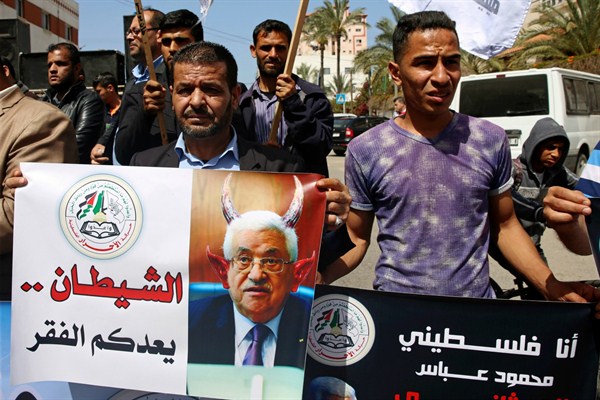Palestinian Prime Minister Rami Hamdallah resigned last month along with his unity government, dealing a setback to reconciliation efforts between rival Palestinian factions. Hamas, which controls the Gaza Strip, denounced the move as an attempt by Mahmoud Abbas, president of the Palestinian Authority, and his West Bank-based political party, Fatah, to further marginalize Hamas. A round of intra-Palestinian talks in Moscow ended last week without any further progress to bridge the divide. In an interview with WPR, Ghaith al-Omari, a senior fellow at the Washington Institute for Near East Policy, discusses the deepening Fatah-Hamas split and the internal politicking that is hampering efforts to resolve it.
World Politics Review: What ultimately doomed the unity government between Fatah and Hamas, and what are the prospects for alleviating at least some of the discord between the two sides?
Ghaith al-Omari: The failure of Palestinian reconciliation has many causes. Ideologically, the two antagonists have irreconcilable platforms. Hamas is an Islamist organization that calls for the destruction of Israel and advocates terrorism, while Fatah, which controls the Palestinian Authority, is a secular movement calling for a negotiated two-state solution to the conflict with Israel. More practically, years of separation have created vested interests that are difficult to neutralize. In its decade of rule over Gaza since violently taking control of the territory in 2007, Hamas has appointed tens of thousands of civil servants, and it wants any new government to keep them on the payroll. Additionally, it has allocated some public lands in Gaza to its supporters, and it wants the Palestinian Authority to recognize these transfers.

